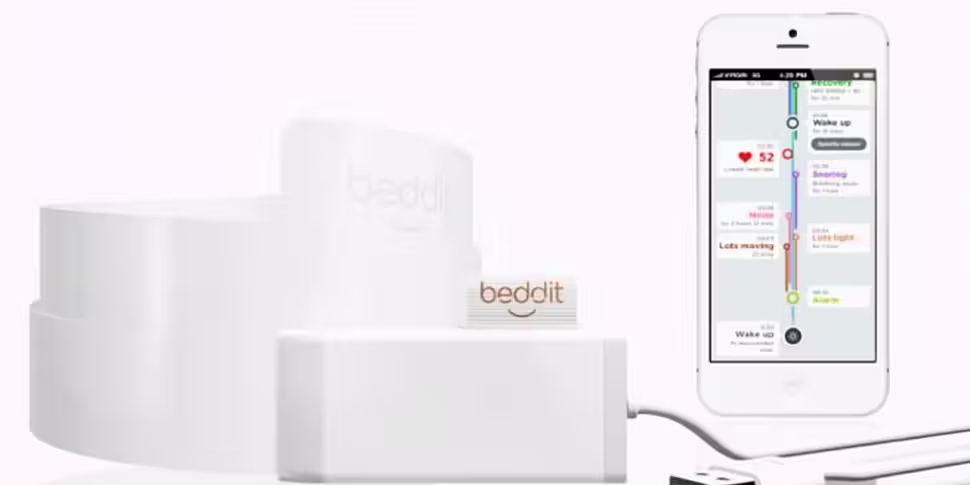The home is the new frontier for many tech companies looking to expand their reach beyond our computers and smartphones.
With its Apple TV and HomeKit-approved devices, Apple is certainly making a major play in this area. Now, it wants to go further into your home, into your bedroom, with the purchase of Finnish sleep tech company Beddit.
Apple bought the software and hardware company for an undisclosed fee, and, as is typical, the company has not said anything about what it plans to do with its new acquisition.
Typically when Apple buys a company it does so for its talent or intellectual property. It usually shuts down all operations and brings everyone into the fold in its headquarters in Cupertino.
We usually hear nothing from those teams again until some feature of the latest iPhone, Apple Watch or MacBook is unveiled that has been built directly from the tech it acquired.
With Beddit, things seem to be a little different.
Apple has not shut down the company. You can still buy Beddit’s sleep sensor, which sits on top of your mattress and monitors your sleep patterns, relaying the detailed information to the Beddit app on your iPhone or Apple Watch. You can see how much sleep you are getting — and critically if it’s the good type of sleep that leaves you feeling rested when you wake up.
Apple also did this with Beats, the headphone company, but Beats and Beddit are not even in the same league when it comes to brand recognition or revenue generating capability.
What Apple is really planning to do with Beddit is unclear. Here are three options it has open to it:
- It could simply leave Beddit as it is, continue selling the product as a stand-alone device, iteratively updating the iPhone and Apple Watch apps.
- Apple could harvest the vast amounts of data collected by the device and feed that into its research for efforts like HealthKit and CareKit, helping to improve sleep tracking capabilities.
- It could take the sensor technology inside Beddit’s device and look to build that into the next version of the Apple Watch or some other wearable it is working on.
Any or all of these are possible, but what is clear is that Apple — like many other companies — is increasingly focused on the health of their customers as a way of increasing the appeal of their products.
Health tech
It was very noticeable when Apple launched the second generation of the Watch, that almost all the focus was on health and fitness aspects of the device.
From smart weighing scales which tell you exactly how much food you should be eating, to the dozens of fitness trackers which slavishly tell us how many steps we have taken every day, tech companies are tapping into users’ desires to know more about how they are living their lives — the so-called quantified self.
With initiatives like ResearchKit, Apple is portraying itself as a company seeking to help mankind by using the devices in our pockets to help researchers find cures for various diseases.
The company is certainly doing some good here, but at the end of the day Apple’s business is selling you an iPhone every 18-24 months, and to do that it needs something new — today nothing seems to capture the public’s imagination as well as health-focused features.
While the Beddit acquisition may indicate that Apple’s next iPhone or Apple Watch will have improved sleep tracking features, the company has at the same time lost its sleep czar Roy Raymann, who has left for a startup called SleepCore which focused on — you guessed it — sleep tracking.
The move shows that as more and more tech companies focus on the areas of health and fitness, getting the right people to drive those initiatives is not going to be easy — even for a company like Apple.
These companies are investing heavily in trying to build a fully fleshed-out picture of their users, everything from what they search for online, to their eating habits, how they sleep and how many steps they take each day.
While there are certainly added benefits users will derive from giving these companies more and more data about themselves — personalized services which offer just what you are looking for when you are looking for it — there is no doubt that it is the companies themselves who will be the big winner by collecting and leveraging the vast troves of data we are all now willing to hand over without a second thought.









